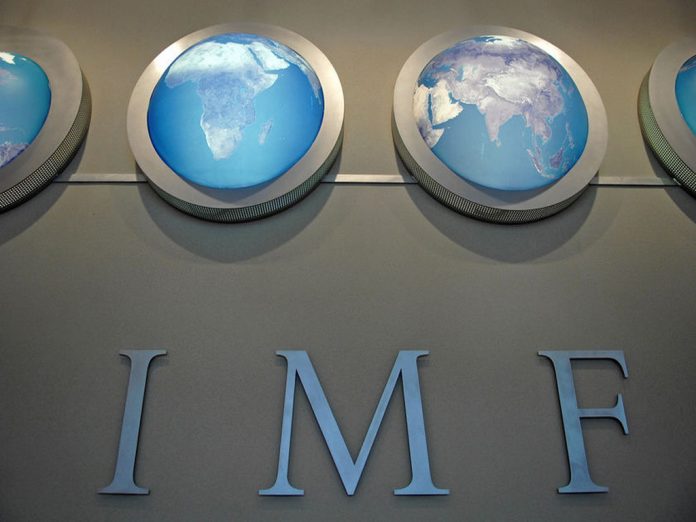NEW YORK: A long-awaited loan agreement between Pakistan and the International Monetary Fund (IMF) will be signed once a few remaining points, including a proposed fuel pricing scheme, are settled, an IMF official confirmed on Friday.
The coalition government and IMF have been negotiating since early February on an agreement that would release $1.1 billion to the cash-strapped country of 220 million people.
The latest issue is a plan, announced by Prime Minister Shehbaz Sharif last week, to charge affluent consumers more for fuel, with the money raised used to subsidise prices for the poor, who have been hit hard by inflation, which in February was at its highest in 50 years.
Petroleum Minister Musadik Malik told Reuters on Thursday that his ministry had been given six weeks to work out the pricing plan.
But the IMF’s resident representative in Pakistan, Esther Perez Ruiz, said the government did not consult the fund about the fuel pricing scheme.
Ruiz, in a message to Reuters, confirmed a media report that a staff-level agreement would be signed once a few remaining points, including the fuel scheme, were settled.
She added that the fund would ask the government for more details about the fuel proposal, including how it would be implemented and what protection would be put in place to prevent abuse.
The petroleum and finance ministries did not immediately respond to a request for comment.
With enough foreign reserves to only cover about four weeks of necessary imports, Pakistan is desperate for the IMF agreement to disperse a $1.1 billion tranche from a $6.5 billion bailout agreed upon in 2019.
The government has already implemented several fiscal measures, including devaluing the rupee, lifting subsidies and raising energy prices as preconditions for the agreement, which Finance Minister Ishaq Dar said this month was “very close”.
Fuel subsidy
Earlier this week, the government shared its strategy for the recently-announced fuel relief programme, which is to be implemented in three phases and will “provide a relief of up to Rs50 per litre to the poor”.
The scheme’s announcement had come days after the government increased the prices of all petroleum products — except the insignificant light diesel oil — by up to Rs13 per litre for the next fortnight.
In a report that detailed the pricing strategy behind the Prime Minister’s Petroleum Relief Programme, the government said it has developed a two-tier pricing programme that would provide relief to two-wheelers (motorcycles), three-wheelers (rickshaws) and small vehicles by dividing the consumers into the categories of “poor” and “rich”.
The programme aims to target roughly 20 million motorcycles and rickshaws (with a capping of 21 litres of fuel) & 1.36m small vehicles (with a capping of 30 litres of fuel) currently active across Pakistan, the report stated.
Using differential pricing wherein the base price of fuel is assumed to be Rs300 per litre, the “poor” will be provided relief of up to Rs50 by charging the “rich” an additional Rs102 per litre.
The resulting assumed prices would be Rs250 for the “poor” and Rs352 for the “rich”.
The report further said that the programme will use two models for its implementation — an e-discount through OTP and a “fuel card”.
The implementation will be done in three phases with the first being an increment in the base fuel price (Rs300) of Rs75 — setting the new price without relief at Rs375 — and the collection of money in an escrow account.
In the second phase, the government will “use two different registration mechanisms to enrol the beneficiaries”.
One mechanism would involve data being uploaded by the Vehicle Registration Authority to the National Database and Registration Authority (Nadra) while the other would have the consumer register their vehicle via SMS.
In the final phase, the discount will be dispersed to the beneficiary after they have registered on the relevant registration portal and a transaction has been processed at the fuel station.
The Ministry of Energy (Petroleum Division) will supervise the roles and responsibilities of various actors involved in the plan — including Nadra, the Oil & Gas Regulatory Authority, oil marketing companies and the National Bank of Pakistan.
‘Bailout not linked to elections’
“Decisions regarding the constitutionality, feasibility and timing of the provincial and general elections rest solely with Pakistani institutions,” IMF’s Resident Chief in Pakistan Esther Perez Ruiz had told The News on Thursday.
The global lender establishes overall targets for general government and allows fiscal flexibility within these targets to redirect spending, prioritize certain activities, or generate additional revenues to meet constitutional obligations.
This statement was made by the IMF resident chief in response to the Finance Ministry’s notification to the Election Commission of Pakistan that due to a severe economic crisis, the government lacked the resources to conduct two provincial assembly elections within the mandated timeframe.
The ECP postponed the Punjab elections earlier in the week because of a shortage of funds cited by the finance secretary, which was due to the ongoing financial crisis.
While Sri Lanka secured financing from the multilateral lender and Bangladesh continues to implement IMF-mandated reforms, Pakistan remains the only South Asian country without an IMF bailout.





Great, Thank you for the knowledge!
Great, Thank you for the knowledge! Nice
Grate Work Nice
Irresistible! Thank you a lot for this type and precise carrier.your offerings is higher than higher.